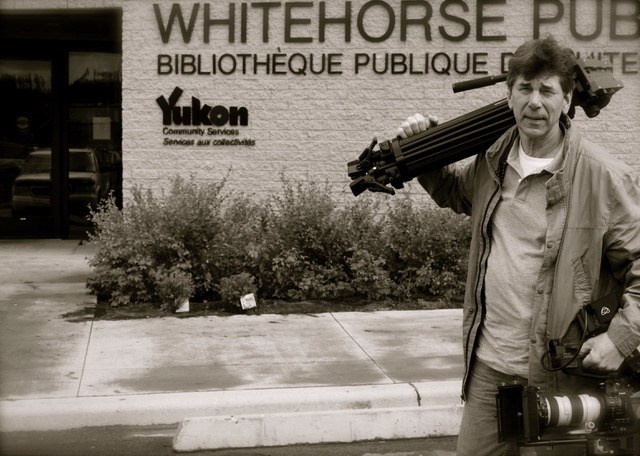As Canadians prepare to go to the polls Oct. 21 for the country’s 43rd federal election, there remain many questions and concerns about the integrity of the electoral process.
Evidence of electronic tampering and foreign interference during the 2016 US presidential election has led to criminal and congressional investigations that have dominated news coverage and polarized political discourse in that country.
Years before the issue of personal data mining and the exploitation of social networking data by political operatives were part of the political zeitgeist, Canada had its own high-tech, election-tampering scandal typified by one word: Robocalls.
That is the focus of Canadian filmmaker Peter Smoczynski’s documentary, Election Day in Canada; When Voter Suppression Came Calling, that premiers at the Bookshelf Cinema, Saturday, Sept. 28.
The film lays out in exhausting detail what happened, first in Saanich-Gulf Islands, B.C., in 2008 and then on a much wider scale in 2011 in Guelph and at least 260 other ridings across the country. Smoczynski makes the case that these crimes were not properly investigated and that leaves our democracy vulnerable to the same types of voter suppression tactics and cyber-crimes moving forward.
“It is called a political crime in the film because that is what people call it and I have to respect what they say,” said Smoczynski. “This film is for the people who didn’t think this happened. It asks, ‘Is Elections Canada ready to move on any election fraud? Can we guarantee the Canadian people that their votes will not be wasted?’”
In the process of making the film, Smoczynski, who lives in Ottawa, drove across the country talking to people along the way. He captured more than 240 hours of interviews, sifted through stacks of court transcripts and testimony and received an immersive education in the sophisticated tactics of voter suppression.
“I did 210 pre-interviews and 60 full-length interviews, 48 of which made it into the film,” he said, “When I put up the website, I will include a lot of pieces I had to cut out of the film. There isn’t a chapter in the film that you couldn’t make into an hour documentary.”
Smoczinski traveled to Guelph in May of 2015 to, among other things, screen parts of the unfinished film during a special fundraising event at the Bookshelf Cinema.
His decision to premier the finished film at the Bookshelf is the fulfilment of a promise he made during that 2015 visit to members of Fair Vote Guelph and other supporters.
“I made a promise and it is important to the people of Guelph whether they gave me $5,000 or $5,” he said. “It would have been a lot harder to make were it not for Susan Watson and the money she has raised.”
Watson believes new subpoena powers given to Elections Canada and mounting evidence of a wider conspiracy as well as errors made in the original investigation are sufficient grounds for re-opening the case.
“In May of this year I sent a 30-page document to the Procedure and House Affairs Committee in Ottawa essentially asking them to review Elections Canada commissioner Yves Cote’s decision to close the investigation,” she said.
The film includes interviews with several people from Guelph who were directly involved in the case including the only person charged and convicted, Michael Sona, a junior staff member for the 2011 Conservative campaign in Guelph.
“I interviewed Sona three times,” said Smoczynski. “He never turned down an interview request and answered all my questions.”
Smoczynski doesn’t appear in the film but, in many ways, he is the central character. His is the story of the intrepid, independent, investigative journalist tracking down the leads. He is slowly going deaf and suffers from a debilitating case of tinnitus. He has relied on his wife Ann to be his ears during the final editing sessions and uses a special blue tooth hearing aid system in order to do telephone interviews.
He has refused money and endorsements from any political party and describes himself as a blue collar mercenary filmmaker.
“Everyone thinks I am an NDP or I am behind the Liberals or simply against Harper,” he said. “This is not a campaign film for anybody. It stands on its own merit. I am not going to sell my kid out. Everything in the film is part of the public record. It just looks really bad when you put it all under one umbrella.”


